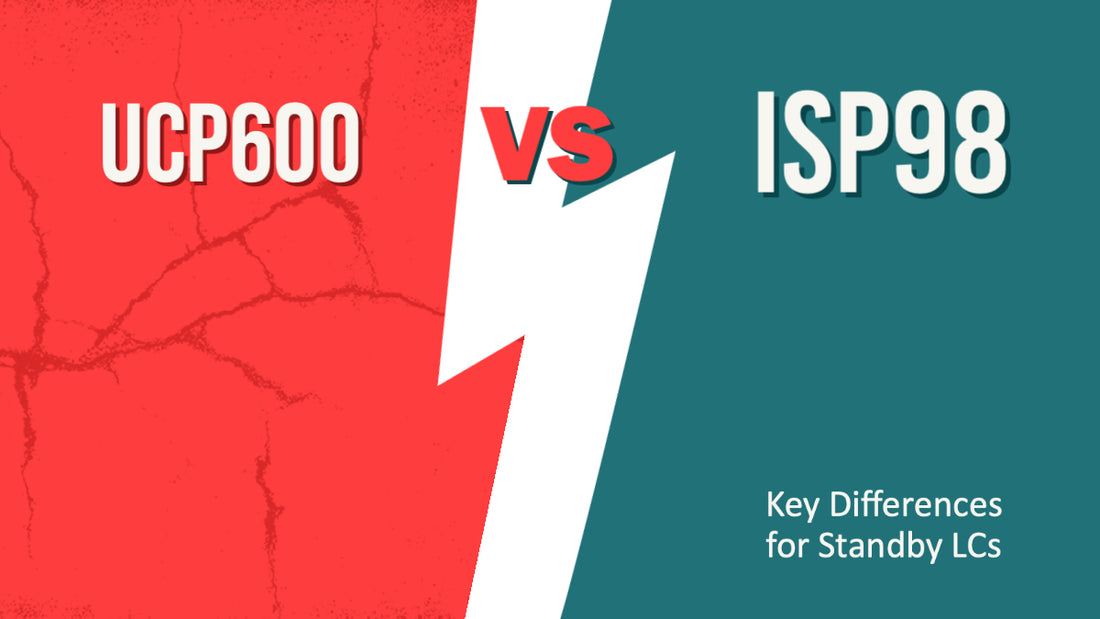Categories
- Anti Money Laundering
- authenticated
- automatic extension
- bill of lading
- compliance
- Counter Terrorist Financing
- extension
- financial crime
- Financial Guarantee
- Guarantee
- Independent Guarantee
- Iran
- ISP98
- LC
- LC Law
- LC Statistics
- Red Flags
- Sanctions
- Standby LC
- SWIFT
- Trade Based Financial Crime Compliance
- tranport documents
- UCP500
- UCP600
- wrongful dishonor
Is the UCP Appropriate for Standby Letters of Credit?
There are risks and lost opportunities in using UCP600 for standbys. Because of the great advantage of rules, many standbys are issued subject to the UCP. The reason that not all standbys are issued subject to rules is the UCP itself. Drafted for commercial LCs, UCP presents serious difficulties for standby users. It is for these reasons that the ISP was created and it is these problems that ISP98 addresses.
Does UCP600 Address Any of These Issues to Make the UCP More Appropriate for Standbys?
Not to any extent. The only difference is that UCP600 makes it clear that its provisions do not apply to copies of transport documents.
ISP98 has 89 rules specifically drafted to reflect current standby practice. UCP500 and UCP600 have only a handful of articles that pertain directly to standbys and have several articles that, if applied to standbys, cause confusion in their interpretation and application.
ISP98 Rule 2.02 (Obligation of Different Branches, Agencies, or Other Offices) identifies an issuer’s branch or other office as a separate “person”, while UCP500 Article 2 and UCP600 Article 3 ¶ 5 identify an issuer’s branch in another country as a separate entity. The difference here is that ISP looks at the capacity in which such branch or other office acts whereas the UCP considers only its geographic location.
ISP98 Rule 3.07 (Separateness of Each Presentation) provides that the failure to make any number of scheduled or permitted presentations DOES NOT waive or negate the right to make another timely presentation under the standby. UCP500 Article 41 and UCP600 Article 32 stipulate that if any instalment is not drawn and/or shipped within the period allowed for that instalment, the credit CEASES TO BE AVAILABLE for that and any subsequent instalments.
ISP98 Rule 3.07 also effectively eliminates the unwritten principle of “precedence”, by stating that the honor of a non-complying presentation does not waive the requirements of the standby for future presentations.
ISP98 Rule 3.08 (Partial Drawing and Multiple Presentations; Amount of Drawings) defines the meanings of partial drawings and multiple drawings (permitted and not permitted) specifically as they relate to standbys. UCP500 Article 40 and UCP600 Article 31 refer to partial shipments and drawings that primarily pertain to commercial credits.
ISP98 Rule 3.13 (Expiration Date on a Non-Business Day) provides for the expiry date AND last date for presentation and any other date relative to presentation, to be extended to next business day, if such day falls on a non-business day. UCP500 Article 44(b) and UCP600 Article 29(c) expressly exclude the last shipment date and all other similar dates that may be stated in the credit.
ISP98 Rule 3.14 (Closure on a Business Day and Authorization of Another Reasonable Place for Presentation) provides an opportunity to present documents within 30 days of a re-opening after a closure caused by “force majeure” or any other reason. UCP500 Article 17 and UCP600 Article 36 do not provide the beneficiary the opportunity to present documents once the bank has reopened.
ISP98 Rule 4.03 (Examination for Inconsistency) states that an examiner is NOT required to examine documents against each other to determine inconsistency, except as might be required by the standby. UCP500 Article 13(a) and UCP600 Article 14(d) DO require an examiner to examine the documents against each other to determine inconsistency.
The requirement for documents in “two copies” or “two fold” under the ISP98 Rule 4.15 (Original, Copy, and Multiple Documents) is satisfied by presentation of either two originals or two copies or one of each. Under UCP500 Article 20(c) and UCP600 Article 17(c), this requirement is satisfied by presentation of one original and one or more copies.
ISP98 provides a “safe harbor” with respect to the time available for document examination. It provides that notification of dishonor made within three banking days following the date of presentation is deemed to be a “reasonable time”. Neither UCP500 nor UCP600 have a similar provision.
ISP98 Rule 5.04 (Notice of Expiry) states that the issuer is not “precluded” by its failure to notify a presenter that a presentation is being dishonored due to the presentation being made after the expiry date of a standby. There is no UCP500 or UCP600 article that covers the issue.
Under ISP98 Rule 6.02 (When Drawing Rights are Transferable), a standby may be transferred in its entirety, more than once and may NOT be partially transferred. Under UCP500 and UCP600 a credit may be partially transferred but may not be transferred in its entirety more than once.





